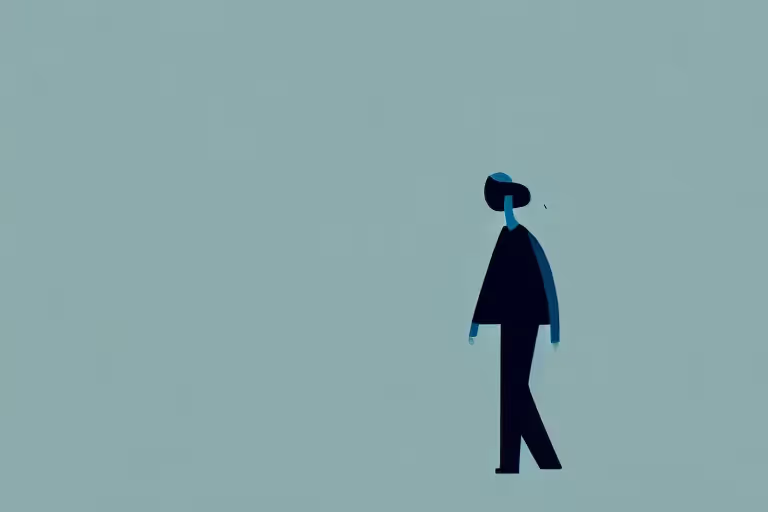Trazodone is a commonly prescribed medication used to treat depression and anxiety disorders. While it can be highly effective in managing these conditions, it is important to be aware of its potential side effects. One such side effect that often goes unrecognized is constipation. Understanding how trazodone can cause constipation is essential for those who are taking or considering taking this medication.
Understanding Trazodone: Uses and Side Effects
Trazodone belongs to a class of medications known as serotonin modulators, which work by balancing the levels of serotonin in the brain. This can help regulate mood and alleviate symptoms of depression and anxiety. However, like many medications, trazodone can also have unwanted side effects.
Trazodone is an antidepressant medication that is commonly prescribed to treat major depressive disorder, anxiety disorders, and insomnia. It is often used off-label for other conditions, such as bipolar disorder and chronic pain.
When it comes to the common side effects of trazodone, there are a few that are worth mentioning. Drowsiness is one of the most commonly reported side effects. Many individuals find that trazodone makes them feel drowsy or sleepy, which can be both a positive and negative aspect of the medication. On one hand, it can help those with insomnia fall asleep more easily. On the other hand, it can make it difficult to stay alert during the day, especially if the medication is taken in the morning.
In addition to drowsiness, trazodone can also cause dizziness. This side effect can be particularly problematic for individuals who already experience balance issues or have a history of falls. It is important for patients taking trazodone to be cautious when standing up or changing positions quickly to avoid any potential accidents.
Another common side effect of trazodone is dry mouth. This can be an uncomfortable sensation, as it can make it difficult to speak or swallow. It is important for individuals experiencing dry mouth to stay hydrated and consider using sugar-free lozenges or gum to help stimulate saliva production.
Blurred vision is another potential side effect of trazodone. While this side effect is usually temporary and resolves on its own, it is still important to exercise caution when engaging in activities that require clear vision, such as driving or operating machinery.
Lastly, constipation is a side effect that can be bothersome for some individuals taking trazodone. While it may not be as commonly reported as drowsiness or dry mouth, it can still cause discomfort and inconvenience. It is important for patients to maintain a healthy diet rich in fiber and stay hydrated to help alleviate this side effect.
Overall, trazodone is a medication that can be effective in treating depression, anxiety, and insomnia. However, it is important for individuals considering trazodone to be aware of the potential side effects and discuss them with their healthcare provider. By understanding the uses and side effects of trazodone, individuals can make informed decisions about their treatment options and work towards achieving optimal mental health.
The Link Between Trazodone and Constipation
Constipation is a known side effect of trazodone, although the exact mechanism is not fully understood. However, several theories exist as to why trazodone may cause constipation in some individuals.
How Trazodone Affects the Digestive System
Trazodone can affect the digestive system in various ways. It may cause a slowdown in bowel movements, leading to constipation. The medication can also affect the muscles in the intestines, reducing their ability to contract and move stool along the digestive tract.
When trazodone is ingested, it is absorbed into the bloodstream and eventually reaches the gastrointestinal tract. Once there, it can interfere with the normal functioning of the digestive system. The drug may alter the balance of neurotransmitters in the gut, such as serotonin, which can impact the smooth movement of the intestines.
In addition, trazodone has been found to have anticholinergic effects, which means it can inhibit the action of acetylcholine, a neurotransmitter that is involved in the contraction of smooth muscles in the intestines. This inhibition can lead to a decrease in peristalsis, the rhythmic contractions that propel stool through the digestive tract. As a result, stool may become stagnant and difficult to pass, leading to constipation.
Scientific Studies Supporting the Link
While more research is needed to fully understand the relationship between trazodone and constipation, several scientific studies have shown a correlation. One study published in the Journal of Clinical Psychopharmacology found that constipation was reported by approximately 8% of participants taking trazodone.
Another study conducted by researchers at a leading university investigated the effects of trazodone on gastrointestinal motility in a group of healthy volunteers. The study found that trazodone significantly delayed the transit time of food through the intestines, indicating a potential mechanism for the development of constipation.
Furthermore, a review of the available literature on trazodone and constipation revealed consistent reports of constipation as a side effect of the medication. The review examined multiple studies and case reports, providing further evidence of the link between trazodone and constipation.
It is important to note that not all individuals who take trazodone will experience constipation. Factors such as dosage, duration of use, and individual susceptibility may contribute to the likelihood of developing this side effect. If constipation becomes bothersome or persistent while taking trazodone, it is recommended to consult a healthcare professional for further evaluation and management.
Symptoms of Trazodone-Induced Constipation
Recognizing the signs of trazodone-induced constipation is crucial for timely intervention and management of this side effect.
Constipation is a common side effect of trazodone, a medication often prescribed for depression and anxiety. While not everyone experiences constipation while taking trazodone, it is important to be aware of the symptoms in case they arise.
Recognizing the Signs
Some of the common signs and symptoms of trazodone-induced constipation include infrequent bowel movements, difficulty passing stool, bloating, abdominal discomfort, and a general feeling of fullness.
Infrequent bowel movements can be defined as having less than three bowel movements per week. If you notice that you are not having regular bowel movements, it could be a sign of trazodone-induced constipation.
Difficulty passing stool is another symptom to watch out for. If you find yourself straining or having to exert more effort than usual to have a bowel movement, it could be an indication of constipation.
Bloating and abdominal discomfort are also common symptoms. You may feel a sense of fullness in your abdomen, as if your stomach is constantly bloated. This can be uncomfortable and may cause pain or discomfort.
When to Seek Medical Attention
If you experience severe or persistent constipation while taking trazodone, it is important to seek medical attention. Your doctor may need to adjust your medication or recommend additional treatment options to alleviate your symptoms.
Severe constipation can lead to complications such as fecal impaction, which occurs when a large mass of stool becomes stuck in the rectum. This can cause extreme discomfort and may require medical intervention to remove the impaction.
Persistent constipation, lasting for more than a few days, should also be brought to the attention of your healthcare provider. It could be a sign of an underlying issue that needs to be addressed.
When discussing your symptoms with your doctor, be prepared to provide details such as the frequency and consistency of your bowel movements, any changes in diet or lifestyle, and any other medications or supplements you are taking. This information will help your doctor determine the best course of action to relieve your constipation.
In some cases, your doctor may recommend lifestyle changes such as increasing your fiber intake, drinking more water, and getting regular exercise to help alleviate constipation. They may also suggest over-the-counter laxatives or prescribe a different medication with fewer constipation side effects.
Remember, it is important to follow your doctor's instructions and not make any changes to your medication regimen without consulting them first.
Managing and Preventing Constipation from Trazodone
There are several strategies that can help manage and prevent constipation caused by trazodone.
Lifestyle Changes to Alleviate Constipation
One of the first steps in managing constipation is making lifestyle changes. These may include increasing fiber intake, staying hydrated, engaging in regular physical activity, and establishing a regular bowel routine.
Over-the-Counter Remedies
In some cases, over-the-counter remedies may be helpful in alleviating trazodone-induced constipation. These can include stool softeners, laxatives, and fiber supplements. However, it is important to consult your doctor or pharmacist before starting any new medications or supplements.
When to Consider Alternative Medications
If you continue to experience severe constipation despite lifestyle changes and over-the-counter remedies, your doctor may consider switching you to an alternative medication. There are several other antidepressant options available, and finding the right one for you may help alleviate your constipation symptoms.
Personal Stories: Living with Trazodone-Induced Constipation
Real-life stories from individuals who have experienced trazodone-induced constipation can provide valuable insight and support for those facing similar challenges.
Case Study 1
John, a 45-year-old man, had been taking trazodone for six months to manage his depression. Unfortunately, he began experiencing constipation as a side effect. Through a combination of lifestyle changes and over-the-counter remedies, John was able to alleviate his symptoms and continue benefiting from trazodone's antidepressant effects.
Case Study 2
Sarah, a 32-year-old woman, started taking trazodone for her anxiety disorder. Initially, she did not experience any constipation, but after several months, the side effect developed. Sarah's doctor decided to switch her to a different medication, and her constipation resolved. She continues to manage her anxiety effectively with an alternative medication.
Constipation can be a bothersome side effect of trazodone, but it is essential to remember that everyone's experience may differ. It is important to consult with your healthcare provider to determine the best course of action for your specific situation.
Finally, for those seeking additional support in managing their mental health, the Aura Health App can be a valuable tool. This app provides a variety of resources, including guided meditation, sleep aids, and mood tracking features, to help individuals unlock a greater sense of wellbeing. With its user-friendly interface and personalized recommendations, the Aura Health App is a powerful tool for anyone on a journey to improved mental health.
Aura is Your All In One App for Meditation, Mindfulness Wellbeing
Find peace every day with one app for your whole well-being. There is no one-size-fits-all solution to mental well-being. Aura is the first all-in-one wellness app that learns how to best help you. Discover an endless library of expert-created tracks for your well-being, all taught by the world’s best coaches, therapists, and storytellers. With Aura's personalized recommendations, you can find peace every morning, day and night.



.webp)






.avif)

%20(1).avif)


.avif)
.avif)
.webp)


.avif)


















































































































.avif)

















.svg)









